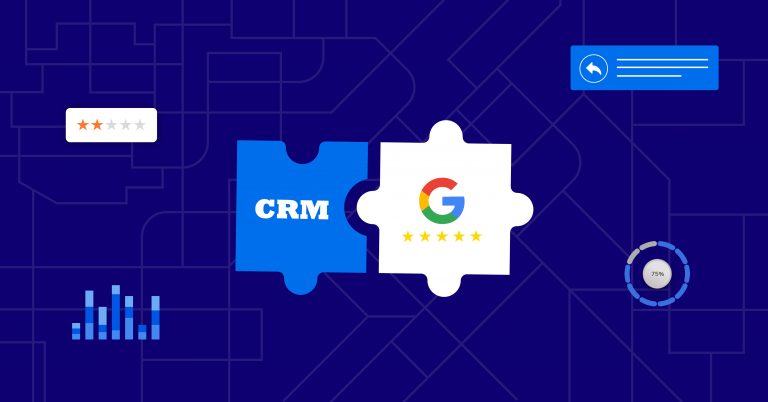The number of local businesses has been on the rise for the past 20+ years, indicating a growing market size and massive potential. While unstructured data collection and handling worked for a long time, it was not optimal. CRM systems solve this by giving you the tools to grow and scale up without disrupting operations.
CRM systems enable these businesses to scale seamlessly without disrupting operations. After a certain point of growth, automated marketing campaigns become a necessity. CRM systems also help in this area!
A CRM system also helps you increase efficiency and get insights into broader business-wide trends.
We have talked about how CRM systems help you organise and leverage data. But how do you obtain this data, categorize it properly, and use it for actionable insights? The solution to this is simpler than you would expect. Google reviews can be a great source of data that integrates easily with your CRM system.
Google reviews provide a 360-degree view of how consumers perceive your business, their common complaints, and what your business is doing well.
Integrating Google Reviews with your Customer Relationship Management (CRM) system is a straightforward process that can provide immense value to your business. Here’s a step-by-step guide to help you get started:
Start by ensuring your CRM system can support Google Reviews CRM system integration. Some CRM systems come equipped with this feature, making the process straightforward. If your current system doesn’t support this integration, it might be time to consider capabilities such as SingleInterface.
SingleInterface is a marketing-to-commerce that offers seamless integration options that make it easy to manage your reviews.
Google provides an API that lets you bring review data directly into your CRM. This includes review content, ratings, and other relevant details. By connecting this API to your CRM, you can automatically collect and organize consumer feedback, all in one place.
Once Google Reviews are integrated, you can set up automated workflows to manage them efficiently. For example, you can create alerts for negative reviews so your team can respond quickly. Positive reviews can trigger follow-up actions, such as thank-you notes or inclusion in marketing materials.
With reviews integrated into your CRM, you can analyze the data to identify trends and make informed decisions. If specific issues are mentioned repeatedly, your CRM system can highlight them as areas needing attention.
On the other hand, praise can be leveraged to improve consumer satisfaction further. SingleInterface is particularly effective at turning this data into actionable insights.
Incorporate Google Review data into individual consumer profiles. This allows your sales and support teams to have a comprehensive view of each consumer’s experience. Knowing if a consumer has shared feedback helps tailor future interactions, addressing any concerns directly.
Regularly check the integration to ensure it’s working well. As your business evolves, you may need to adjust how you use review data within your CRM. Whether you’re growing or refining your approach, tools like Singleinterface can help you stay aligned with consumer feedback.

Integrating Google Reviews with your CRM system isn’t just about streamlining processes — it’s about enhancing your understanding of consumer feedback. Here’s why it matters:
Data is more valuable than ever. When all your competitors are using every data point to optimize operations, being left behind isn’t an option. Google Reviews is an excellent source of consolidated multi-dimensional data.
By integrating Google Reviews with your CRM, you can turn consumer feedback into a valuable resource for improving your business. With the right tools like SingleInterface, this process becomes both manageable and impactful.